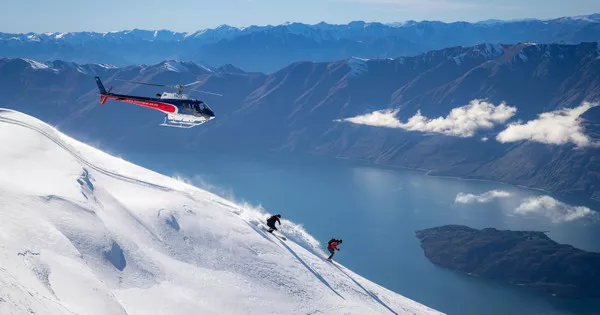Mountain sports have captivated adventurers and outdoor enthusiasts for centuries, offering a unique blend of challenge, adrenaline, and natural beauty. From rock climbing to skiing, mountaineering to mountain biking, these activities have evolved into organized sports with dedicated communities and professional athletes. However, amidst the allure of these activities, questions often arise regarding their legitimacy. Are mountain sports truly valid athletic pursuits, or are they merely reckless endeavors fueled by adrenaline? In this article, we delve into the nuances of mountain sports to uncover their legitimacy, exploring the physical, mental, and societal dimensions that define them.
Defining Legitimacy in Mountain Sports
Before delving into the legitimacy of mountain sports, it’s essential to establish what legitimacy means in this context. Legitimacy, in the realm of sports, encompasses several key aspects:
1. Physical Demands: Legitimate sports require a significant level of physical skill, strength, and endurance. Athletes must undergo rigorous training and adhere to strict safety protocols to participate safely.
2. Mental Fortitude: Beyond physical prowess, legitimate sports often demand mental resilience, focus, and strategy. Athletes must navigate challenging terrain, make split-second decisions, and manage risk effectively.
3. Community and Culture: Legitimate sports are supported by vibrant communities, governing bodies, and cultural institutions. They offer avenues for camaraderie, skill development, and competitive engagement.
4. Ethical Considerations: Legitimate sports prioritize safety, environmental stewardship, and ethical conduct. Athletes, organizers, and enthusiasts uphold codes of conduct and respect for nature and fellow participants.
With these criteria in mind, we can evaluate the legitimacy of various mountain sports and their place within the broader sporting landscape.
The Physical Rigor of Mountain Sports
Mountain sports encompass a wide range of activities, each presenting unique physical challenges. Rock climbing, for example, demands exceptional upper-body strength, grip endurance, and agility. Skiing and snowboarding require dynamic balance, coordination, and mastery of varied terrain. Mountaineering tests cardiovascular fitness, cold tolerance, and technical climbing skills.
To excel in these sports, athletes undergo rigorous training regimens tailored to their specific disciplines. They develop strength, flexibility, and endurance through targeted workouts, practice sessions, and simulated scenarios. Moreover, they often enlist the guidance of coaches and mentors to refine their techniques and mitigate risk.
The physical rigor of mountain sports is undeniable, with athletes pushing their bodies to the limit in pursuit of mastery. From scaling sheer cliffs to navigating treacherous slopes, these activities demand peak physical performance and a profound respect for the natural environment.
The Mental Challenges of Mountain Sports
Beyond the physical demands, mountain sports pose significant mental challenges. Athletes must contend with fear, uncertainty, and exposure to extreme conditions. Rock climbers must maintain focus and composure while ascending dizzying heights, relying on mental fortitude to overcome obstacles. Skiers and snowboarders confront steep descents, variable snow conditions, and unpredictable terrain, requiring split-second decision-making and adaptability.
Moreover, mountain sports often involve inherent risks, including avalanches, rockfall, and inclement weather. Athletes must assess these hazards thoughtfully, employing risk management strategies and adhering to safety protocols. This combination of physical skill and mental acuity distinguishes mountain sports as legitimate athletic pursuits, demanding a holistic approach to training and competition.
The Community and Culture Surrounding Mountain Sports
Central to the legitimacy of mountain sports is the vibrant community and culture that surrounds them. From local climbing gyms to international competitions, these activities foster camaraderie, mentorship, and shared passion. Athletes form tight-knit bonds forged through shared experiences and mutual respect for the mountains.
Furthermore, mountain sports are supported by governing bodies, federations, and organizations that promote safety, education, and access. These entities establish standards, certify instructors, and host events that celebrate the spirit of adventure while prioritizing participant well-being.
The culture of mountain sports extends beyond athleticism to encompass environmental stewardship and ethical conduct. Athletes are advocates for conservation, promoting responsible recreation practices and minimizing their ecological footprint. They embrace Leave No Trace principles and advocate for sustainable access to mountain environments, ensuring that future generations can enjoy these landscapes.
Addressing Concerns and Criticisms
Despite their legitimacy, mountain sports are not without critics. Some argue that these activities prioritize thrill-seeking over safety, endangering both participants and rescuers. Others raise concerns about the environmental impact of outdoor recreation, citing issues such as trail erosion and wildlife disturbance.
However, it’s essential to recognize that these criticisms often stem from misunderstandings or misrepresentations of mountain sports. While they entail inherent risks, athletes undergo extensive training and adhere to safety protocols to mitigate these dangers. Moreover, the outdoor community is actively engaged in conservation efforts, working to preserve and protect the landscapes that serve as the backdrop for their adventures.
Conclusion
In conclusion, mountain sports stand as legitimate athletic pursuits that blend physical prowess, mental fortitude, and cultural significance. From the soaring peaks of the Himalayas to the craggy cliffs of Yosemite, these activities inspire awe and admiration while demanding respect and humility. By embracing the values of safety, community, and environmental stewardship, athletes and enthusiasts alike uphold the legitimacy of mountain sports, ensuring that they endure as cherished expressions of human achievement and connection with the natural world.

